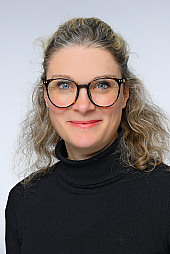- Startseite
- Forschung
- Research
Research
Worldwide, over 40 million people are estimated to require palliative care at the end of life every year (WHO 2018), due also to the aging, aging-associated diseases, and demographic change, so there is a growing and urgent need for robust and relevant research in palliative and end of life care.
The main aims of our Research Program are:
- To increase scientific evidence for better care and health services for patients in their last months of life and their relatives independent from their diagnoses
- To increase our basic understanding of clinically relevant phenomena in palliative care
- To improve societal competency regarding dying, death and bereavement
- And by this: To prove the principle that clinically high relevant palliative and hospice care must continuously be improved by academic endeavors.
Ethically acceptable research in this field must consider
- the existential situation for patients, relatives and staff
- the decreasing body and cognitive function of patients
- our complex and fragmented health care system
- the necessity of a multi-, inter- and transdisciplinary approach
Our research collaboration partners are
- within the Faculty of Medicine (e.g. Clinical Trail Centre Cologne (ZKS), Institute of Medical Statistics and Computational Biology (IMSB))
- within the University of Cologne (e.g. RFA Health Services Research, Center for Health Services Research Cologne (ZVFK), the faculties of Human Sciences; and Management, Economics, and Social Sciences)
- within the City of Cologne (e.g. CoRe-Net, City, AOK, Palliative and hospice network)
- national (e.g. CIO ABCD, other Departments of Palliative Medicine) and
- international (e.g. Best Care of the Dying Collaborative, Dyspnea Society, Princess Margaret Cancer Center Toronto, Public Health Palliative Care International, WeCare: End of Life Care Chair Barcelona, iLive-Project, Better-B-Project, Cicley Saunders Institute King’s College London)
Our research is or has been funded by e.g. the Federal Ministry of Research and Education (BMBF), the Federal Ministry for Families, Senior Citizens, Women and Youth (BMFSFJ), the Innovationsfonds, Gemeinnützige Hertie-Stiftung, Wilhelm Sander Stiftung, and EU programs such as Horizon 2020.
Our efforts for research capacity building and academic staff development are
- Continuous method improvement (e.g. research workshops on methods (Forschungswerkstatt)
- graduate schools (e.g. GROW)
- different training programs for staff and public (e.g., “Palliativ&”, KöGö, EUPCA).
Our research is coordinated by our research coordinator.
Our current research groups are working on:
"Kölner Forschungswerkstatt"
Researchers from the Centre for Palliative Medicine at the University of Cologne meet in the research workshop to work together on their data material. The meetings for the evaluation of qualitative and quantitative data take place every six weeks.
Contact: Dr. Dr. Julia Strupp (julia.strupp@uk-koeln.de)


